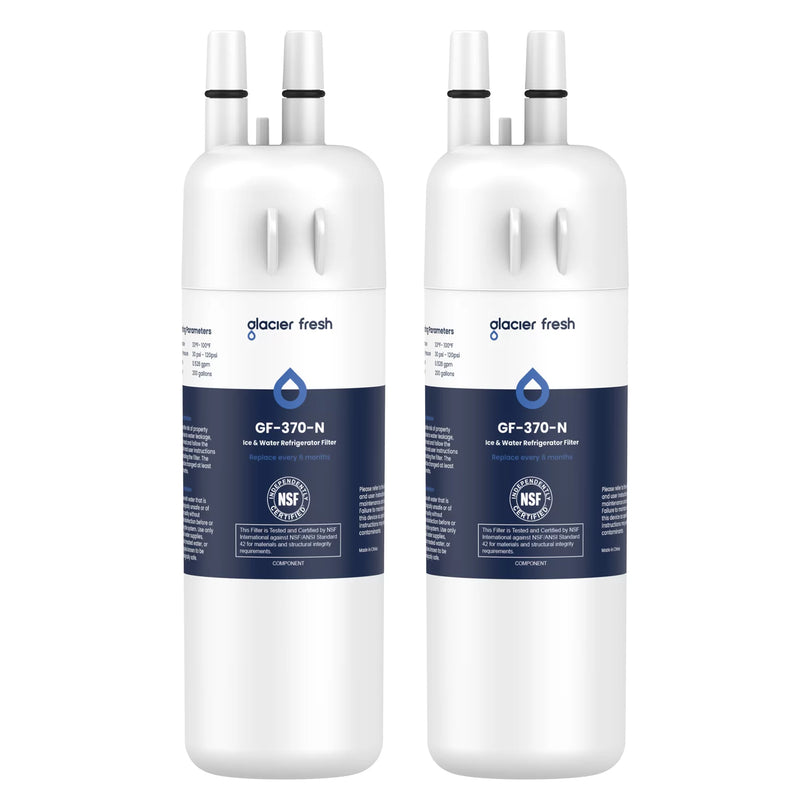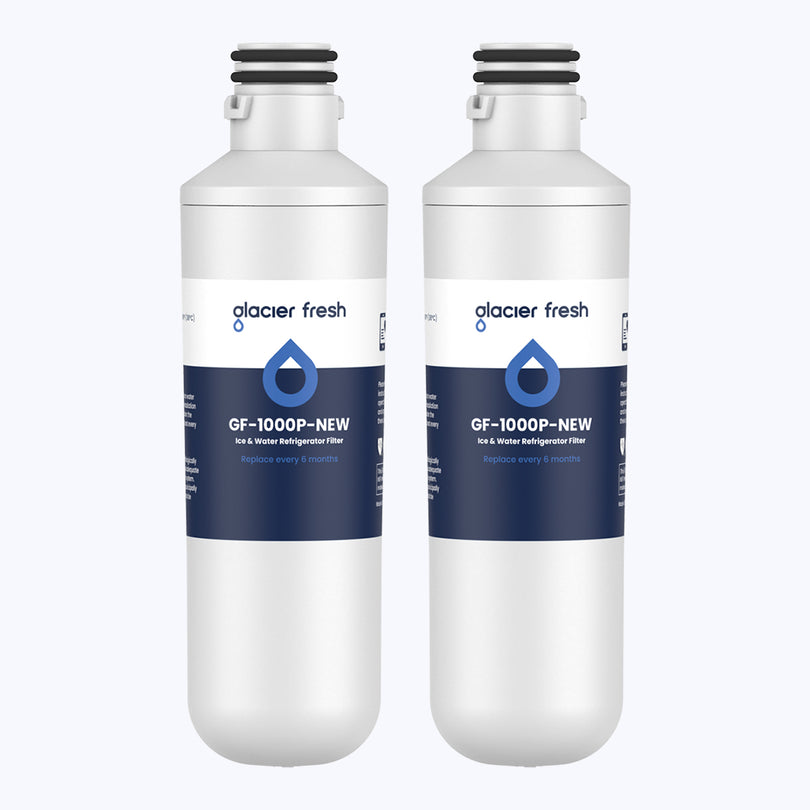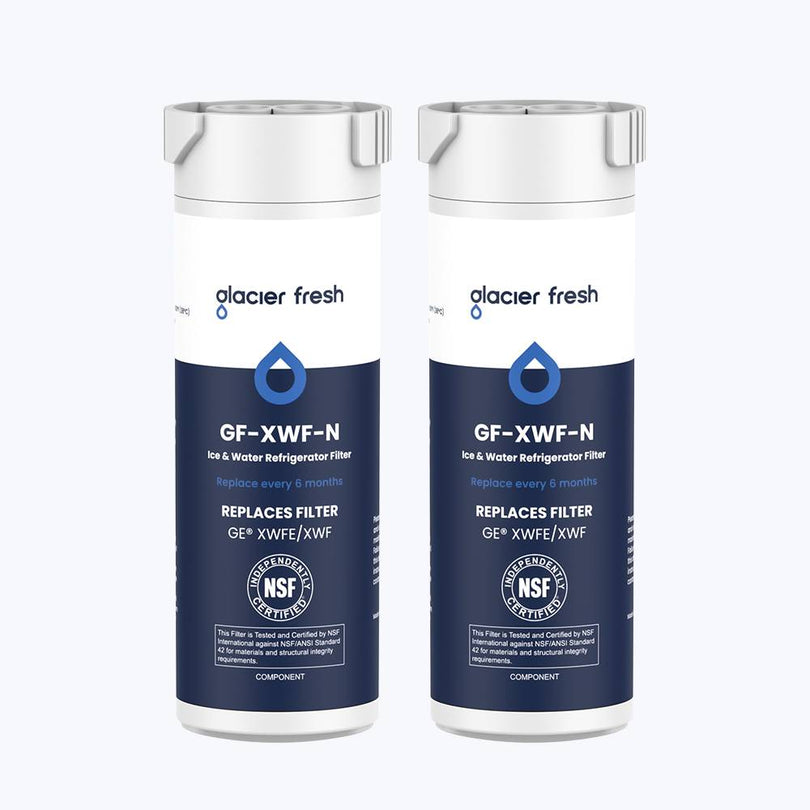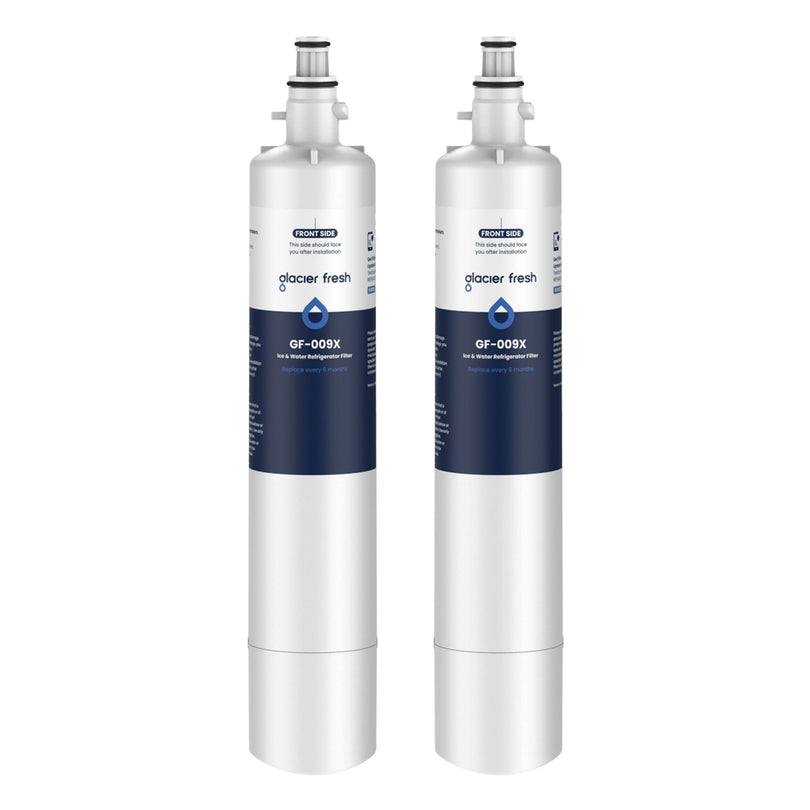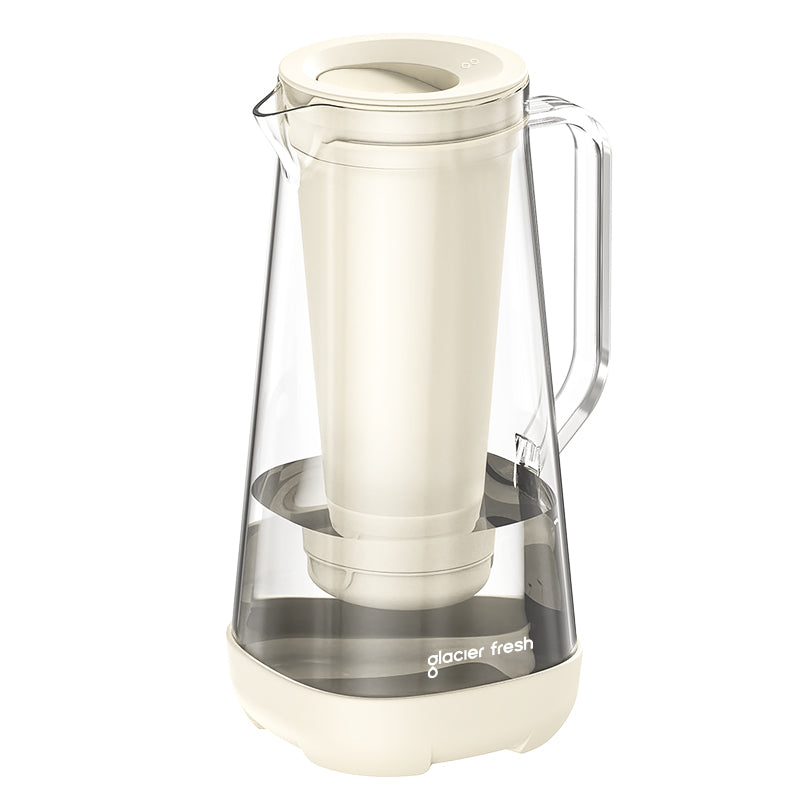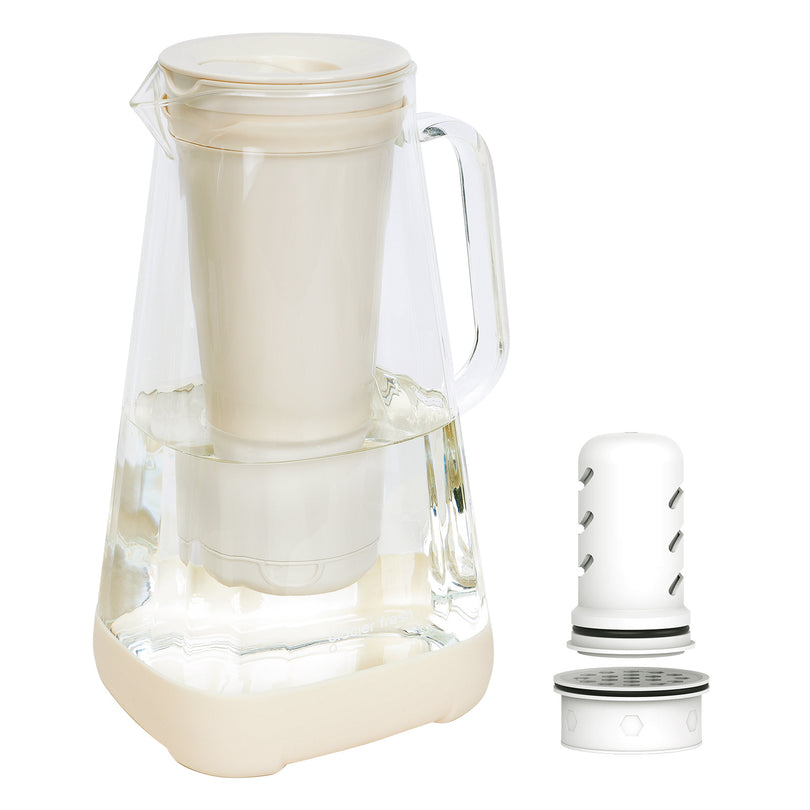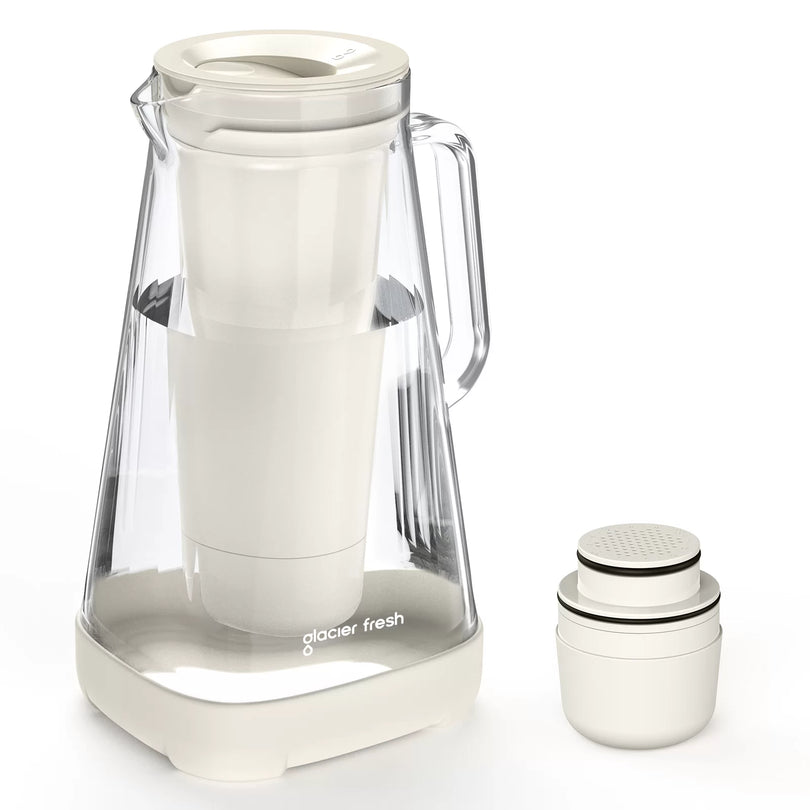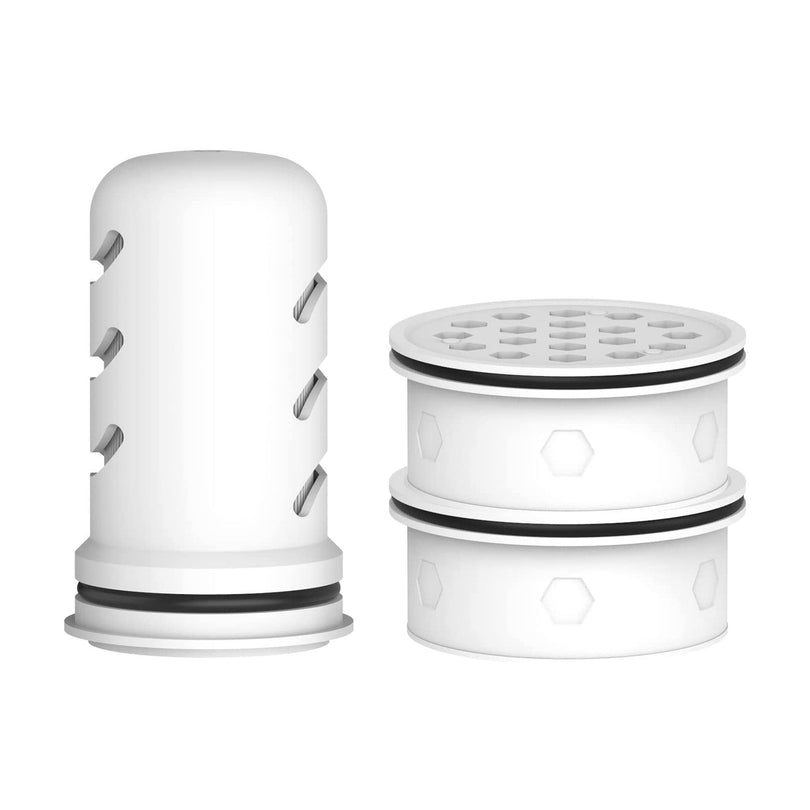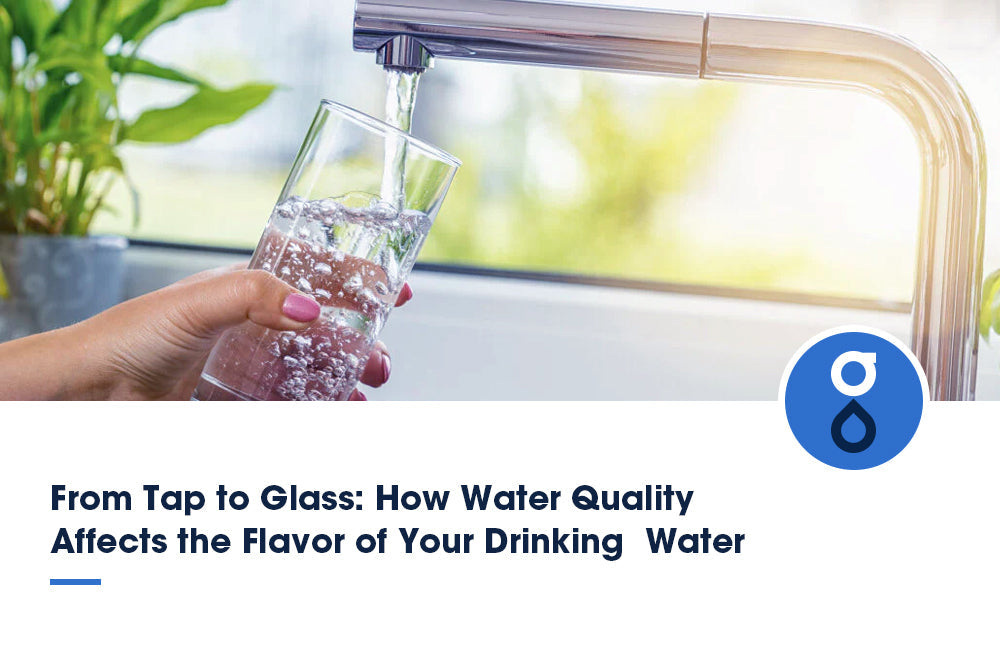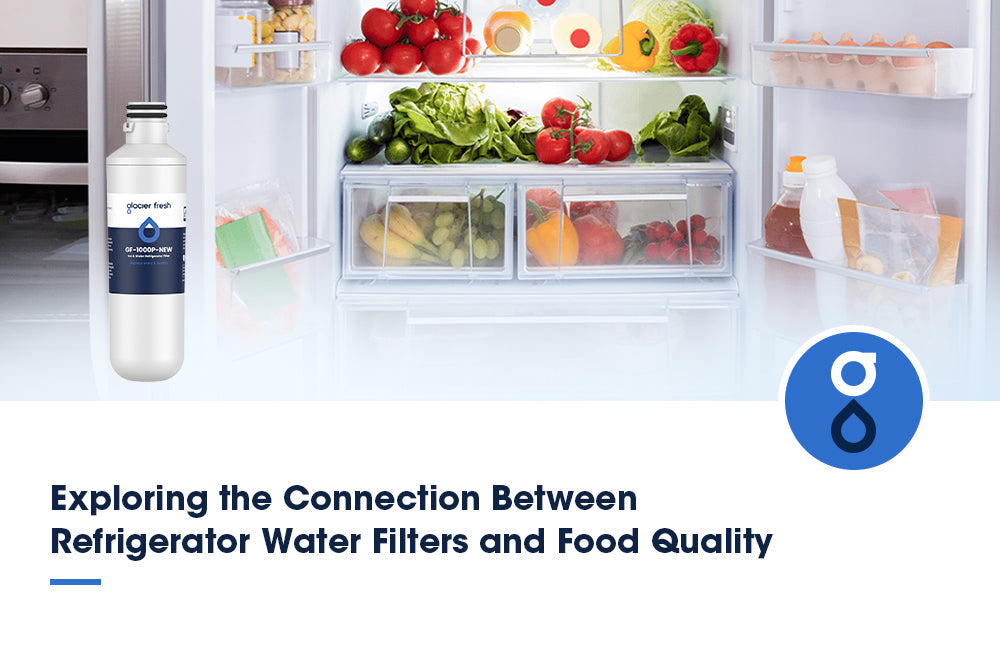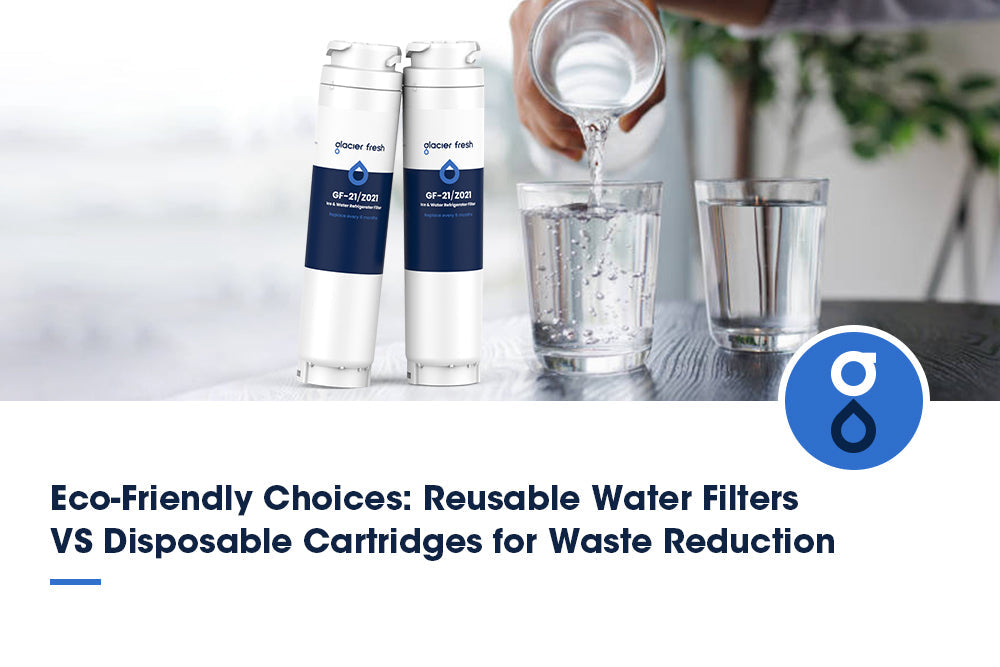Table of Contents:
Wie definiert man Wasserqualität und warum ist sie wichtig?
Physikalische Faktoren, die die Wasserqualität beeinflussen
Die Auswirkungen einer schlechten Wasserqualität auf den Geschmack Ihres Trinkwassers
Gesundheitsrisiken durch schlechte Wasserqualität
Methoden zur Verbesserung Ihrer Trinkwasserqualität
FAQs
Abschluss
Wussten Sie, dass der Geschmack Ihres Trinkwassers von seiner Qualität beeinflusst werden kann? Studien haben gezeigt, dass sich eine schlechte Wasserqualität negativ auf den Geschmack Ihres Leitungswassers auswirken kann. Von Chemikalien und Verunreinigungen bis hin zum Mineralgehalt spielt die Qualität Ihres Wassers eine entscheidende Rolle für seinen Geschmack.
Um bei jedem Schluck ein erfrischendes und angenehmes Erlebnis zu genießen, ist es wichtig zu verstehen, wie sich die Wasserqualität auf den Geschmack Ihres Trinkwassers auswirkt. In diesem Artikel untersuchen wir die Faktoren, die die Wasserqualität beeinflussen und wie sie den Geschmack von Leitungswasser beeinflussen. Tauchen wir also ein und entdecken Sie den faszinierenden Zusammenhang zwischen Wasserqualität und dem Geschmack Ihres Trinkwassers.
Wie definiert man Wasserqualität und warum ist sie wichtig?

Die Wasserqualität umfasst die physikalischen, chemischen und biologischen Eigenschaften des Wassers, die seine Eignung für verschiedene Verwendungszwecke bestimmen. Die Bedeutung von Wasserqualitätsvorschriften kann nicht genug betont werden. Diese Vorschriften legen Standards und Richtlinien für die Bereitstellung von sicherem und gesundem Trinkwasser fest. Methoden zur Prüfung der Wasserqualität spielen eine entscheidende Rolle bei der Beurteilung des Zustands von Wasserquellen und der Identifizierung potenzieller Schadstoffe.
Schlechte Wasserqualität kann die öffentliche Gesundheit stark beeinträchtigen und zu wasserbedingten Krankheiten und langfristigen Gesundheitsproblemen führen. Darüber hinaus sind mit Wasserqualitätsproblemen auch wirtschaftliche Folgen verbunden, beispielsweise die Kosten für die Aufbereitung von verunreinigtem Wasser und die Auswirkungen auf Industrien, die auf sauberes Wasser angewiesen sind. Wasseraufbereitungsanlagen sind für die Gewährleistung der Wasserqualität von entscheidender Bedeutung, da sie Filter- und Reinigungsverfahren zur Entfernung von Verunreinigungen und Schadstoffen implementieren.
Physikalische Faktoren, die die Wasserqualität beeinflussen
Wenn es um die physikalischen Faktoren geht, die die Wasserqualität beeinflussen, müssen mehrere wichtige Punkte berücksichtigt werden.

Temperatur
Die Wassertemperatur beeinflusst nicht nur die Flüssigkeitszufuhr, sondern auch die Geschmackswahrnehmung. Kaltes Wasser wird oft als erfrischend empfunden und aufgrund seiner Frische bevorzugt, während heißes Wasser allgemein mit Wärme und Behaglichkeit assoziiert wird. Die Temperatur spielt jedoch auch eine Rolle für die Wasserqualität. Höhere Temperaturen können das Wachstum von Bakterien und anderen Mikroorganismen fördern und so die Wassersicherheit beeinträchtigen. Andererseits erfordert die Zubereitung einer perfekten Tasse Tee eine präzise Wassertemperatur. Verschiedene Teesorten benötigen unterschiedliche Temperaturen, um ihr optimales Aroma zu entfalten.
Mineralstoffgehalt

Der Mineralgehalt Ihres Trinkwassers kann dessen Geschmack erheblich beeinflussen. pH-Wert, Wasserhärte und Elektrolythaushalt bestimmen den Geschmack Ihres Wassers.
- pH-Wert : Der Säure- oder Alkaligehalt Ihres Wassers kann dessen Geschmack beeinflussen. Wasser mit einem ausgeglichenen pH-Wert hat tendenziell einen neutraleren Geschmack.
- Wasserhärte : Hartes Wasser, das einen hohen Anteil an Mineralien wie Kalzium und Magnesium enthält, kann Ihrem Wasser einen leicht bitteren oder metallischen Geschmack verleihen.
- Elektrolythaushalt : Elektrolyte wie Natrium und Kalium können den Geschmack Ihres Wassers verbessern und ihm einen erfrischenden Geschmack verleihen.
Es ist wichtig zu beachten, dass verschiedene Wasserarten, wie alkalisches und Mineralwasser, aufgrund ihres spezifischen Mineralgehalts einen einzigartigen Geschmack haben. Achten Sie daher auf die Mineralzusammensetzung Ihres Trinkwassers, um ein optimales Geschmackserlebnis zu gewährleisten.
Gelöste Feststoffe und andere Verunreinigungen
Gelöste Feststoffe wie Mineralien und Salze können den Geschmack von Wasser verändern. Ein hoher Gehalt an gelösten Feststoffen kann einen bitteren oder salzigen Geschmack erzeugen, während ein niedriger Gehalt zu einem faden oder faden Geschmack führen kann. Chemische Verunreinigungen hingegen können dem Wasser unerwünschte Aromen und Gerüche verleihen. Um den besten Geschmack und die beste Qualität Ihres Trinkwassers zu gewährleisten, ist es wichtig, Filteroptionen und Wasseraufbereitungsmethoden in Betracht zu ziehen, die diese Verunreinigungen effektiv entfernen. So genießen Sie sauberes, erfrischendes Wasser ohne unangenehmen Geschmack und Geruch.
Schwefelwasserstoff und andere Gase
Die Aufnahme von Schwefelwasserstoff und anderen Gasen kann den Geschmack Ihres Trinkwassers erheblich beeinträchtigen. Diese Gase können durch verschiedene Faktoren wie chemische Reaktionen, Umweltverschmutzung und mikrobielle Kontamination in Ihrem Wasser vorhanden sein. Schwefelwasserstoff kann Ihrem Wasser einen stechenden Geruch verleihen, der an faule Eier erinnert. Dies kann Ihr Trinkwasser unangenehm und unangenehm zum Trinken machen. Wasseraufbereitungsmethoden wie Oxidation oder Glaswasserfilterkrüge können helfen, diese Gase zu entfernen und Geschmack und Geruch Ihres Wassers zu verbessern.
Ästhetische Probleme (Verfärbung, Trübung)
Gelegentlich kann es zu optischen Problemen wie Verfärbungen oder Trübungen in Ihrem Trinkwasser kommen. Diese Probleme können durch verschiedene physikalische Faktoren verursacht werden, die die Wasserqualität beeinträchtigen, darunter Sedimentpartikel, Algenblüten, bakterielle Verunreinigungen, chemische Schadstoffe und Chlorbehandlung. Sedimentpartikel wie Sand oder Schlamm können Ihr Wasser schlammig oder trüb erscheinen lassen.
Algenblüten, also das schnelle Wachstum von Algen in Gewässern, können zu grün- oder blaugrünen Verfärbungen führen. Bakterielle Verunreinigungen können zu trübem Aussehen und unangenehmem Geruch oder Geschmack führen. Chemische Schadstoffe wie Industrieabfälle oder landwirtschaftliche Abwässer können zu einer gelblichen oder bräunlichen Verfärbung des Wassers führen. Schließlich kann die Chlorbehandlung, obwohl sie zur Desinfektion notwendig ist, manchmal zu einer leichten Verfärbung des Wassers führen.
Die Auswirkungen einer schlechten Wasserqualität auf den Geschmack Ihres Trinkwassers
Metallischer Geschmack
Bei hohen Metallgehalten im Trinkwasser kann ein metallischer Geschmack auftreten. Dieser metallische Nachgeschmack ist unangenehm und kann Ihr Trinkerlebnis beeinträchtigen. Hier sind einige wichtige Punkte, die Sie hinsichtlich des metallischen Geschmacks im Trinkwasser beachten sollten:
- Ursachen für metallischen Geschmack : Hohe Konzentrationen von Metallen wie Eisen, Kupfer oder Zink können einen metallischen Geschmack in Ihrem Wasser erzeugen.
- Mittel gegen metallischen Geschmack im Wasser : Die Installation eines Wasserfiltersystems oder die Verwendung von Wasseraufbereitungsmethoden kann dazu beitragen, den metallischen Geschmack in Ihrem Trinkwasser zu reduzieren.
- Auswirkungen eines metallischen Geschmacks auf den Wasserkonsum : Ein metallischer Geschmack kann Sie davon abhalten, genügend Wasser zu trinken, was zu Dehydrierung und möglichen Gesundheitsproblemen führen kann.
Unangenehmer Geschmack oder Geruch

Ein unangenehmer Geschmack oder Geruch Ihres Trinkwassers kann Ihr Trinkerlebnis erheblich beeinträchtigen. Ob metallischer Geschmack oder unangenehmer Geruch – schlechte Wasserqualität kann Ihnen den Genuss eines erfrischenden Glases Wasser verderben. Diese unangenehmen Geschmacks- und Geruchsstoffe können auf verschiedene Faktoren zurückzuführen sein, darunter die chemische Zusammensetzung des Wassers und mikrobielle Verunreinigungen. Die Wasseraufbereitung spielt eine entscheidende Rolle bei der Minderung dieser Probleme.
Verfärbtes Wasser
Wenn Ihr Trinkwasser trüb ist, kann dies den Geschmack erheblich beeinträchtigen. Verfärbtes Wasser wird oft durch verschiedene Faktoren verursacht, die mit schlechter Wasserqualität zusammenhängen, wie z. B. rostige Rohre, Wasserverfärbungen und Probleme mit den Wasserleitungen. So beeinflussen diese Faktoren den Geschmack Ihres Trinkwassers:
- Rostige Rohre : Wenn Wasser durch korrodierte oder rostige Rohre fließt, kann es metallische Aromen annehmen, die dem Wasser einen unangenehmen Geschmack verleihen.
- Wasserverfärbung : Wenn Ihr Wasser braun oder gelb erscheint, deutet dies auf Verunreinigungen hin. Diese Verunreinigungen können den Geschmack Ihres Wassers verändern und ihm einen erdigen oder metallischen Geschmack verleihen.
- Probleme mit der Wasserleitung : Fehlerhafte Systeme können Ihre Wasserversorgung verunreinigen und so Geschmack und Qualität beeinträchtigen.
Gesundheitsrisiken durch schlechte Wasserqualität
Schlechte Wasserqualität kann erhebliche Gesundheitsrisiken für den Einzelnen bergen. Verunreinigtes Wasser kann verschiedene Schadstoffe wie Bakterien, Viren, Chemikalien und Schwermetalle enthalten, die zu durch Wasser übertragenen Krankheiten und anderen Gesundheitsproblemen führen. Diese Schadstoffe können aus verschiedenen Quellen in die Wasserversorgung gelangen, darunter Industrieabfälle, landwirtschaftliche Abwässer und unzureichende Wasseraufbereitungsanlagen. Durch Wasser übertragene Krankheiten wie Cholera, Typhus und Ruhr können durch verunreinigtes Wasser verursacht werden. Um diese Risiken zu mindern, sind geeignete Wasseraufbereitungs- und Filtersysteme zur Entfernung oder Reduzierung von Schadstoffen unerlässlich. Regelmäßige Tests der Wasserquellen sind ebenfalls unerlässlich, um sicheres Trinkwasser zu gewährleisten. Durch die Behebung von Problemen mit der Wasserqualität können Einzelpersonen ihre Gesundheit und ihr Wohlbefinden schützen.

Methoden zur Verbesserung Ihrer Trinkwasserqualität
Um die beste Trinkwasserqualität zu gewährleisten, sollten Sie die Filter- und Aufbereitungsmethoden regelmäßig verbessern. Hier sind einige Methoden, die Ihnen dabei helfen können:
- Filtersysteme : Durch die Installation eines hochwertigen Filtersystems können Verunreinigungen wie Sedimente, Chlor und Schwermetalle effektiv aus Ihrem Trinkwasser entfernt werden.
- Wasseraufbereitung : Durch die Verwendung von Wasseraufbereitungsmethoden wie Destillation oder Kohlefiltration können Sie die Qualität Ihres Trinkwassers durch die Entfernung von Verunreinigungen und die Verbesserung des Geschmacks weiter verbessern.
- Chemische Behandlung : Die Zugabe von Chemikalien wie Chlor oder Jod zum Wasser kann schädliche Bakterien und Viren abtöten und das Wasser somit unbedenklich machen. Wichtig ist jedoch die richtige Dosierung dieser Chemikalien.
- Umkehrosmose : Bei diesem Verfahren werden mithilfe einer semipermeablen Membran gelöste Feststoffe, Verunreinigungen und Unreinheiten aus dem Wasser entfernt, wodurch saubereres und gesünderes Trinkwasser entsteht.
- UV-Desinfektion : Ultraviolettes Licht kann Bakterien, Viren und andere Mikroorganismen im Wasser wirksam abtöten und bietet so eine chemikalienfreie Desinfektionsmethode.
FAQs
Wie kann ich die Qualität meines Trinkwassers zu Hause testen?
Sie können die Qualität Ihres Trinkwassers zu Hause mit DIY-Wassertest-Kits testen. Diese Kits bieten Indikatoren zur Wasserqualität, um auf Verunreinigungen zu prüfen und die Sicherheit Ihres Trinkwassers zu gewährleisten.
Welche anderen Methoden können neben Filtersystemen zur Verbesserung der Trinkwasserqualität eingesetzt werden?
Um die Qualität Ihres Trinkwassers zu verbessern, können Sie natürliche Alternativen wie die chemische Desinfektion, UV-Behandlung oder sogar das traditionelle Abkochen ausprobieren. Diese Optionen können dazu beitragen, sauberes und sicheres Trinkwasser zu gewährleisten.
Abschluss
Zusammenfassend lässt sich sagen, dass die Wasserqualität entscheidend für den Geschmack Ihres Trinkwassers ist. Schlechte Wasserqualität kann den Geschmack negativ beeinflussen und das Wasser unangenehm oder ungenießbar machen. Darüber hinaus birgt der Konsum von Wasser minderer Qualität gesundheitliche Risiken. Es ist wichtig, die physikalischen Faktoren zu verstehen, die die Wasserqualität beeinflussen, und die notwendigen Schritte zu ihrer Verbesserung zu unternehmen. Durch die Gewährleistung einer guten Wasserqualität können Sie besser schmeckendes und sichereres Trinkwasser genießen.

